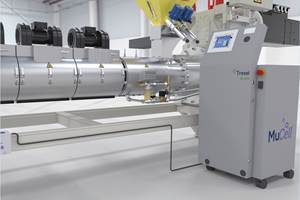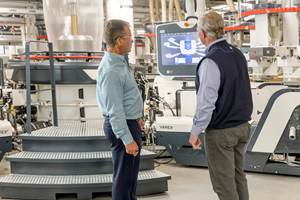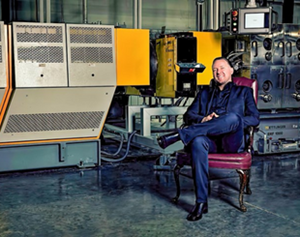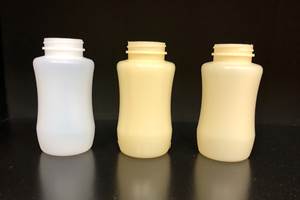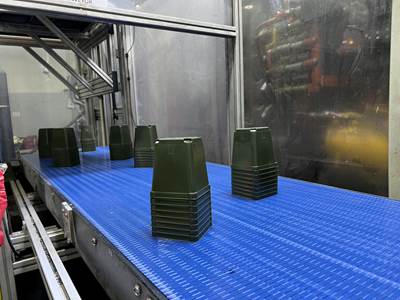Dow's Project MASARO Seeks to Create Blueprint for Zero-Waste Communities
Project MASARO provides communities in Indonesia with a closed loop waste management system, which processes many types of waste into valuable products, like fuel and fertilizer, that can be used by members of the community.
Poor waste management infrastructure is a big contributor to the global plastic pollution problem. This is a reason why Dow is working on several different projects to relieve some on the burden on global recycling infrastructures. In July, I reported on Dow’s work to build schools out of hard-to-recycle plastic waste in Colombia. And I recently talked with Dow to learn more about its new initiative, Project MASARO, which has created a replicable blueprint for zero-waste economies that enables communities to convert their waste into valuable resources.
Indonesia is the world’s second largest plastic waste producer; disposing 3.2 million tons of plastic waste each year. Dow partnered with the Bandung Institute of Technology (IBT) to develop Project MASARO, which was launched through a pilot showcase located at a boarding school in the village of Babakan. The pilot project introduces the concept and technology of the system through a series of training workshops that highlight the importance of waste separation to the overall system.
Han Zhang, Asia-Pacific sustainability director, packaging and specialty plastics at Dow, said that the company believes that no plastic should end up in the environment.
“This is why we support projects like MASARO that provide local, scalable solutions to tackle the issue of plastic waste,” he said. “Less than 50 percent of Indonesia’s solid waste is collected in urban areas, and even less outside of urban settings. Through projects like MASARO, we can help establish local infrastructure to manage the waste, while educating community members on the importance of recycling. By creating solutions that impact local communities, we can reduce waste in those areas, while providing value back to the community members through new products.”
The Zero Waste Project
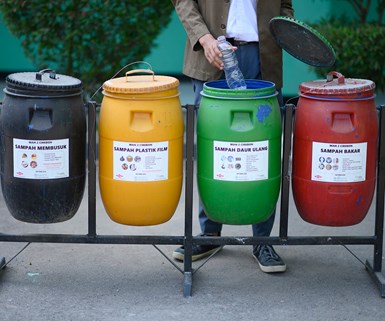
There are multiple bins for sorting waste based on material which the students, teachers and community members use to dispose of their waste.
The waste is collected at the boarding school, where the pilot showcase is located. The bins separate organic materials, traditionally recycled materials (glass, metal, etc.), hard to recycle plastic, and all other waste (leaves, contaminated paper, etc.) Once separated, the waste is taken to be processed.
Organic materials like food waste are turned into fertilizer, which can be used by farmers and the local community. Hard to recycle plastic is turned into fuel through pyrolysis, while recycled materials like glass, paper, and metal are taken to traditional recycling companies. All other materials are converted into energy and used to power the pyrolysis equipment. Zhang says that selling and reusing the new end products provide economic viability to MASARO and keeps the system running, while also retaining the value of the materials that are commonly littered.
To date, there have been more than 8800 lbs of waste diverted, which was converted into more than 18,000 liters of fertilizer and 90 liters of liquid fuel.
The pilot showcase was selected to be located in a boarding school because it hosts students from all over Indonesia, Zhang said.
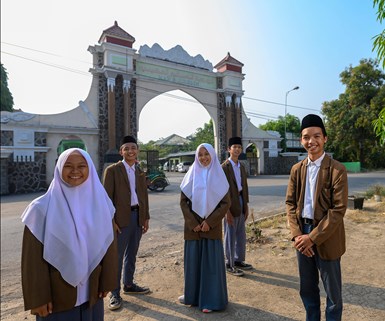
There have been about 3,000 students and teachers trained to date, with plans of training an additional 10,000 community members before the end of the year.
All students and teachers at the boarding school have gone through training on recycling and waste management, hosted by faculty from ITB. The trainings establish foundational knowledge about proper waste management and outlines how this separation is producing less waste and instead yielding more valuable products.
“Our hope is that students can take positive behaviors they learn and apply them when they return home, so these practices can spread throughout the country,” he said. “The training is a critical component to the success of MASARO.”
Zhang said that right now, they are focused on Project MASARO continuously operating in Babakan, so that they can learn how to make improvements in future iterations. He said they envision MASARO being scaled to other locations around Indonesia to provide the same benefits to other local communities.
Dow says its working in every region on similar projects that tackle the issue of plastic waste by turning that waste into new, valuable materials.
“We know we can’t solve the plastic waste issue alone. It will take the work of our entire industry, trade associations, governments, NGOs, brand owners, and consumers working together to make an impact. If other members of the plastic industry are interested in learning how they can get involved with reducing plastic waste, we encourage them to connect with us to learn more about what we are doing and how we can collaborate. We are all partners in this cause of ending plastic waste in the environment,” Zhang said.
Be sure to check out the below video from Dow that showcases Project MASARO and features interviews from those involved. One student says that she originally wanted to become a psychologist but now wants to open a recycling project in her own village.
Related Content
Foam-Core Multilayer Blow Molding: How It’s Done
Learn here how to take advantage of new lightweighting and recycle utilization opportunities in consumer packaging, thanks to a collaboration of leaders in microcellular foaming and multilayer head design.
Read MorePregis Performance Flexibles: In the ‘Wow’ Business
Pregis went big and bold with investment in a brand-new, state-of-the-art plant and spent big on expanding an existing facility. High-tech lines, well-known leadership and a commitment to sustainability are bringing the “wow” factor to blown film.
Read MoreA Recycling Plant, Renewed
Reinvention is essential at Capital Polymers, a toll recycler that has completely transformed its operation in a short period of time.
Read MoreHow to Extrusion Blow Mold PHA/PLA Blends
You need to pay attention to the inherent characteristics of biopolymers PHA/PLA materials when setting process parameters to realize better and more consistent outcomes.
Read MoreRead Next
Advanced Recycling: Beyond Pyrolysis
Consumer-product brand owners increasingly see advanced chemical recycling as a necessary complement to mechanical recycling if they are to meet ambitious goals for a circular economy in the next decade. Dozens of technology providers are developing new technologies to overcome the limitations of existing pyrolysis methods and to commercialize various alternative approaches to chemical recycling of plastics.
Read MoreProcessor Turns to AI to Help Keep Machines Humming
At captive processor McConkey, a new generation of artificial intelligence models, highlighted by ChatGPT, is helping it wade through the shortage of skilled labor and keep its production lines churning out good parts.
Read MorePeople 4.0 – How to Get Buy-In from Your Staff for Industry 4.0 Systems
Implementing a production monitoring system as the foundation of a ‘smart factory’ is about integrating people with new technology as much as it is about integrating machines and computers. Here are tips from a company that has gone through the process.
Read More



















